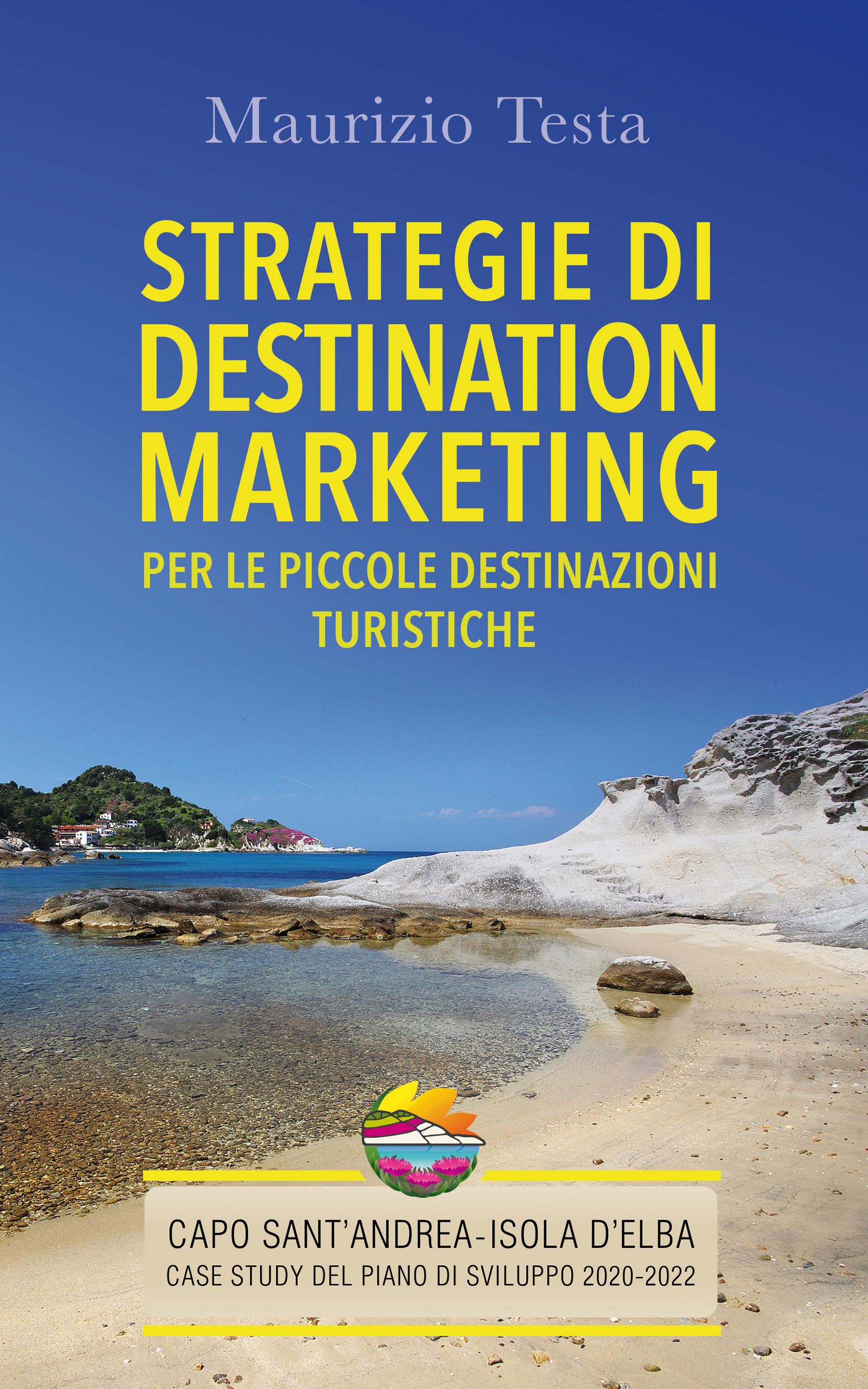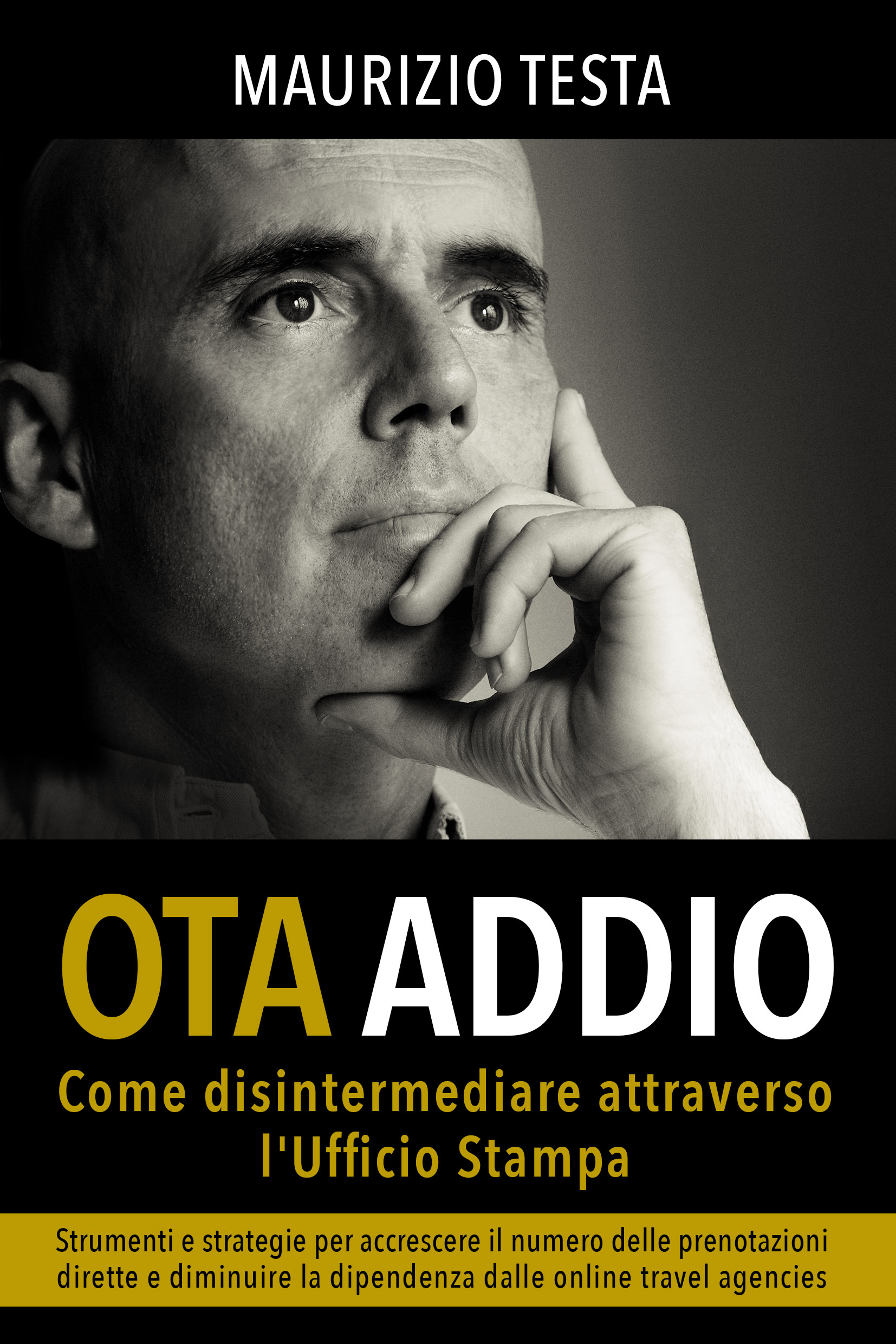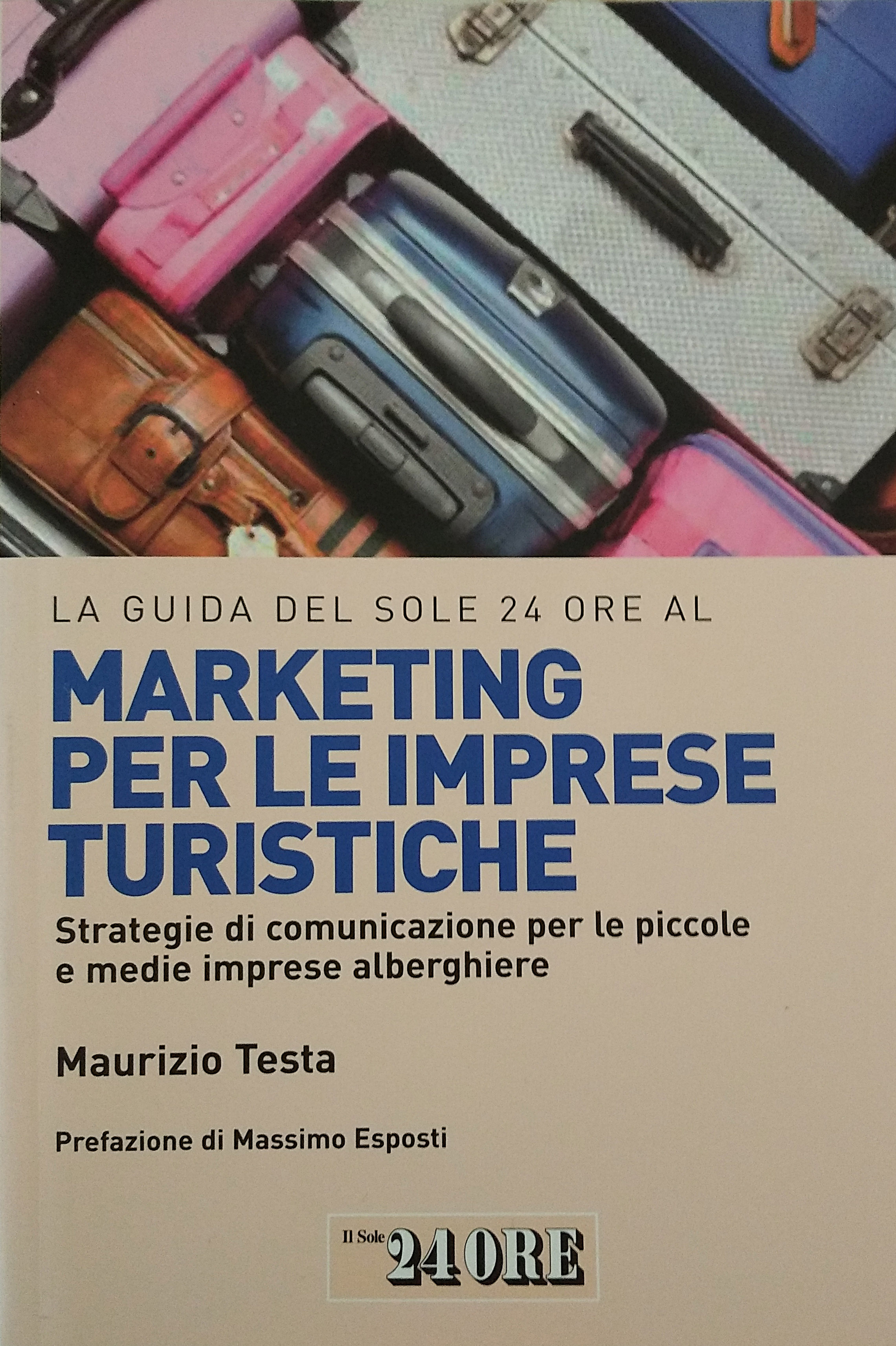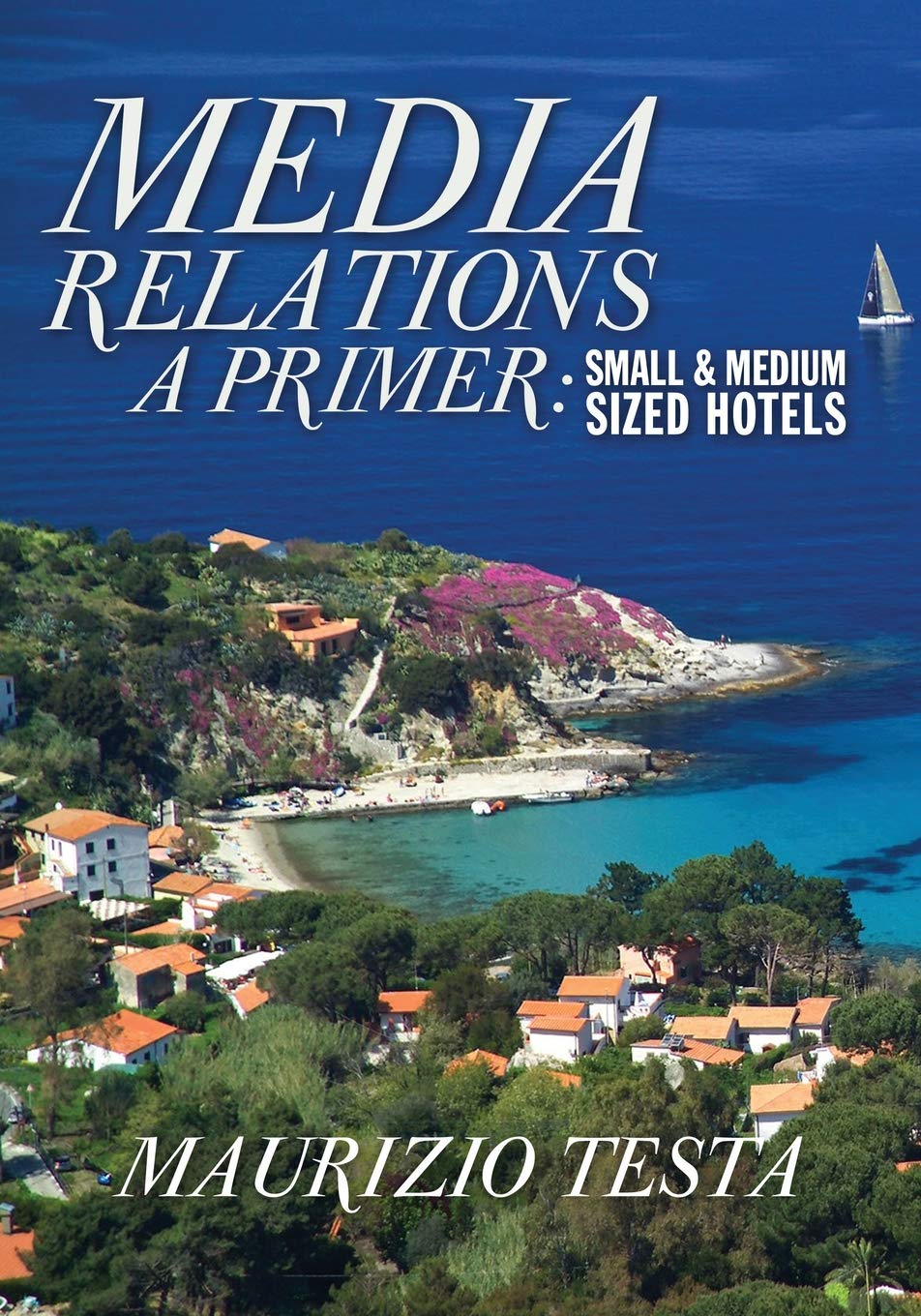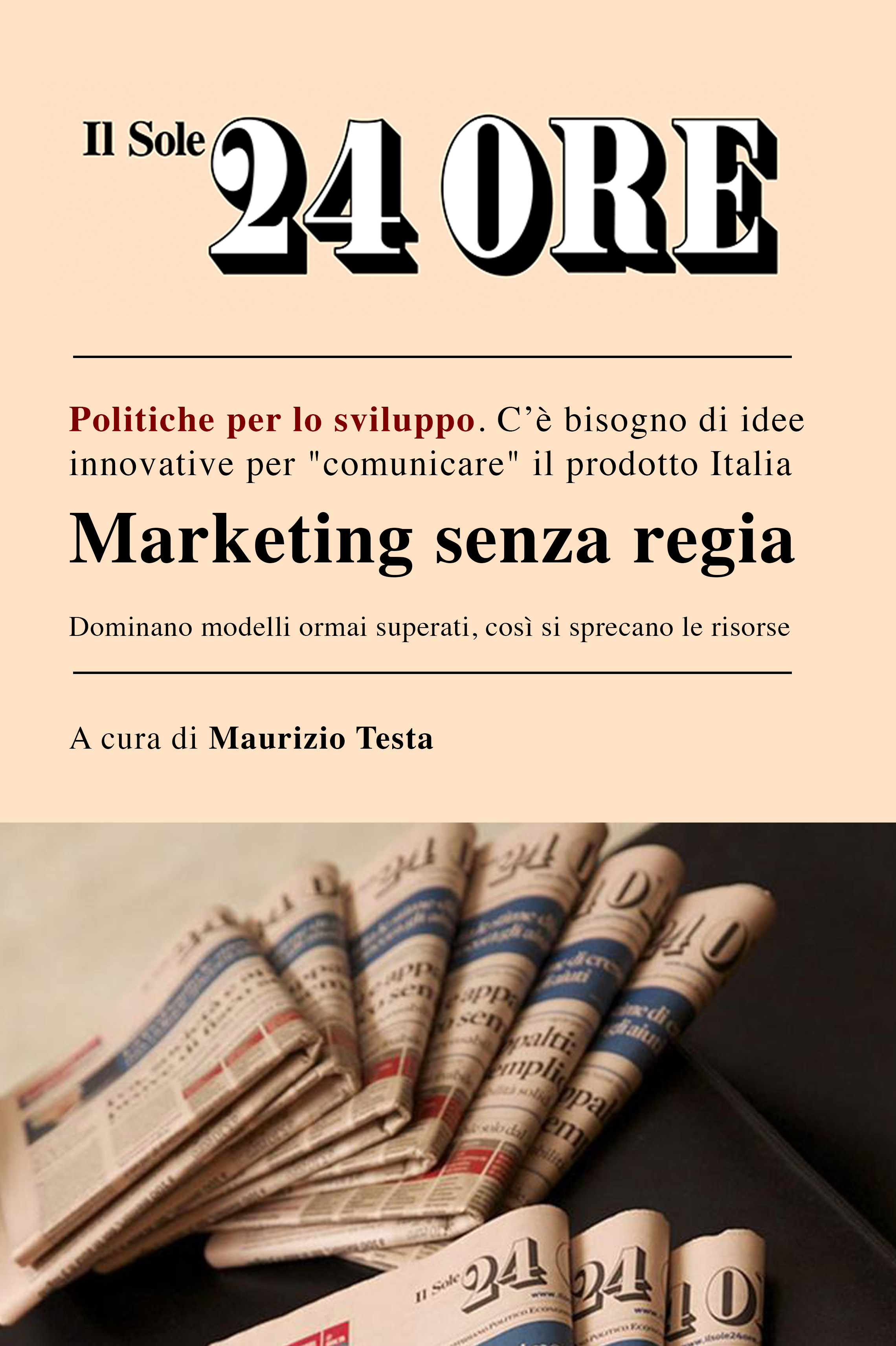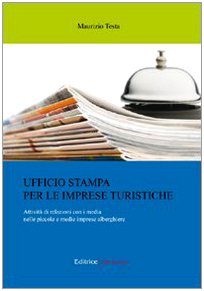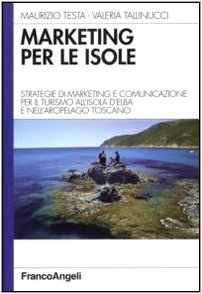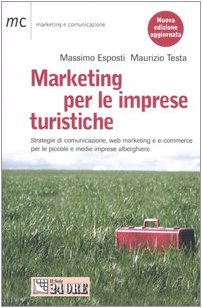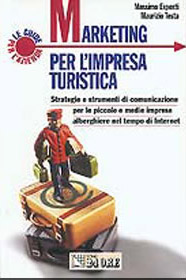DESTINATION MARKETING STRATEGIES FOR SMALL TOURIST DESTINATIONS
Case Study of the 2020-2021 development plan for Capo Sant'Andrea, Island of Elba
What tourism marketing strategies will enable us to overcome the uncertainties of the years to come? Does it still make sense today to carry out marketing activities to promote an individual tourism SME?
Over the course of the pandemic, the tourism industry has had to face bouts of closure and fear followed by fully booked summer seasons, which have boosted the circuits and facilities of domestic tourism, for so long at the mercy of competition from more exotic, distant destinations.
But the task of competing at a global level is once again upon us and Destination Marketing is just the tool to win the challenge posed to small tourism businesses. In short, we need to adopt marketing and promotion strategies that focus not merely on the individual business, but on the tourist destination as a whole and as part of a wider region.
In Capo Sant'Andrea, we have established a DMO (Destination Management Organization) to do just that and by means of which we can map, enhance and promote local tourist products in an active and effective way.
This work was born from our experience, as a testimony to the fact that, through the joint collaboration of all contributing players and businesses, even a small tourist destination can be truly competitive on the market.
Bid Farewell to OTAs
Disintermediate with the press office
How do you manage your hotel's bookings independently and fill rooms without relying on OTAs? The solution, as Maurizio Testa explains, is very simple: rely on a public relations and press office to promote your business through the many channels that now typify our times. Today's press office has many tools available apart from traditional print media. Digital media constitutes an extraordinary multiplier of information and articles online and offline can lead the flow of Internet users to your hotel's website. In this way, reservations can be made directly, without the need for online travel agencies and, above all, without paying commission. Starting point: an up-to-date website and a number of essential marketing tools to enable you to manage your visibility effectively on the Internet, such as SEO and booking engine. Needless to say, clear specialisation and a strong market positioning are key to focusing attention on your hotel. And then we set off on the adventure of the press office, to conquer other, especially overseas, markets through a sound annual turnover plan for various countries and with the equally important goal of removing seasonal obstacles to business and thus extending the duration of the working year. This is how, in the communication era, the press office becomes a truly essential marketing tool for strategically managing your image on media and social networks and gaining a competitive advantage over the competition.
MARKETING FOR TOURIST COMPANIES
SMEs in the hotel sector which are still in search of an identity need specific, well defined marketing strategies different to those of large hotels, as they focus on a personal approach. But how can a limited budget be rationalised and allocated to marketing and communications? How can we deal with an increasingly specific market? This is a simple and clear operational guideline for a sector undergoing major expansion. The tourist industry represents one of the strongest sectors of the Italian economy. Although tradition, hospitality and honesty have always been the strong point of SMEs in the hotel sector in the past, the sector is now confronted by a double threat: increasingly fierce competition from abroad and a market homologation which is seeing the same offers repeated by thousands of companies throughout the country.
MEDIA RELATIONS A PRIMER
Small & medium sized hotels
Operational techniques, practical solutions and concrete examples of how to use a press office to promote a small or medium-sized tourism enterprise. How best to promote a tourist SME in today's market? Traditional print advertising and intermediation often turn out to be expensive and inefficient in the communications jungle. A press office provides the straightest, most reliable path to the true target: the client. How to get substantial returns from a reasonable investment? This manual analyzes how traditional and online press offices actually operate, and examines internet public relations options (blogs and social networks).
SOLE 24 ORE
Development policies. Innovative ideas are required to communicate the product “Italy”
Marketing without a director
PRESS OFFICE FOR TOURISM ENTERPRISES
Media relations activities for small and medium sized hotel businesses
Operational techniques, practical problems, concrete examples for promoting a tourism SME by means of a Press office service. How to promote a tourism SME today. In the jungle of media communications, advertising and traditional intermediation can often work out expensive and ineffective. The work of a press office is a more valid and direct means of hitting bulls eye, i.e. the client. In this guide we analyse the work of a press office, both in the traditional form and in its web version, and some of the public relations opportunities presented by the Internet (web logs and social networks), explaining how to get great returns from reasonable investment.
MARKETING AND COMMUNICATION
Strategies for tourism on the Island of Elba and the Tuscan Archipelago
How to guarantee the future of the Island of Elba as a tourist destination? Which resources need to be exploited in order to fight off new international competition? How can we identify new niches in the tourism market? The authors offer a series of replies to these questions divided on two levels. On one hand, the need to exploit the Elba product, comprising the beauty of the island's landscape as well as its history and traditions, and the need to encourage new forms of tourism, linked in with the values of living experience, local culture and outdoor sports, to complement Elba's traditional beach holiday tourism. And on the other hand, the necessity of promoting appropriate marketing and communication activities for the product by means of a standardized network of press offices, integrated "internet, intranet and contact centre" services and a trademark to distinguish the image of the Island of Elba as part of National Park of the Tuscan Archipelago, thus creating a series of tools applicable to all aspects of the island's reality.
MARKETING FOR THE HOSPITALITY INDUSTRY
Communication, web marketing and e-commerce strategies for small and medium-sized businesses in the hospitality industry
A simple, clear guide for a fast developing business and profession. Tourism, one of the driving industries of the Italian economy, is based on a well-established network of small and medium-sized businesses whose traditions, hospitality and quality have always been great strengths. Now, however, the industry is facing a double threat; increasingly fierce competition from overseas and a trend towards the standardisation of the market, which sees the same offer duplicated by thousands of businesses all over Italy. How can SMEs prevent this erosion and tackle an increasingly demanding market? SMEs in the hospitality industry in search of strong branding, need specific, clear-cut marketing strategies in order to distinguish themselves from the big hotels and highlight their personal approach. Internet is an important resource and online marketing methods can be used very effectively to show differentiation, quality and customised service. How can SMEs make the most of their small budgets and take full advantage of online marketing and communication tools? With a practical, case-study approach, this book examines opportunities and strategies for better management in the hospitality industry; from hotel specialisation to the use of the Internet, from booking networks to the creation of websites.
MARKETING FOR THE TOURIST INDUSTRY
Communication strategies and tools for small and medium sized hotels in the age of the Internet
The tourist industry is one of the strongest sectors of the Italian economy. The entrepreneurial fabric of this field is unusual in that it consists of a solid network of small and medium sized companies. But while tradition, welcome and genuineness have always been one of the main selling points for these small and medium hotels, the sector now faces a double threat: increasingly strong foreign competition and a sort of market homologation that sees the same offer replicated by thousands of companies all over the peninsula. What can we do in order to prevent our margins from being reduced? How can we tackle this increasingly demanding market? Reconstruct our image, prepare marketing and communication tools, and learn how to use the Internet and new technology, these are all challenges that should be taken on with the correct tools. This book has been written as a consultation tool for small and medium sized companies working in the tourist industry. It provides simple but precise explanations, examining opportunities and strategies for improving business management: from hotel Internet specialization to booking networks and website creation. Chapter after chapter, the book provides new management techniques for the tourist industry, suitable for the modern market that is open to change, while not loosing its characteristic features and peculiarities.
